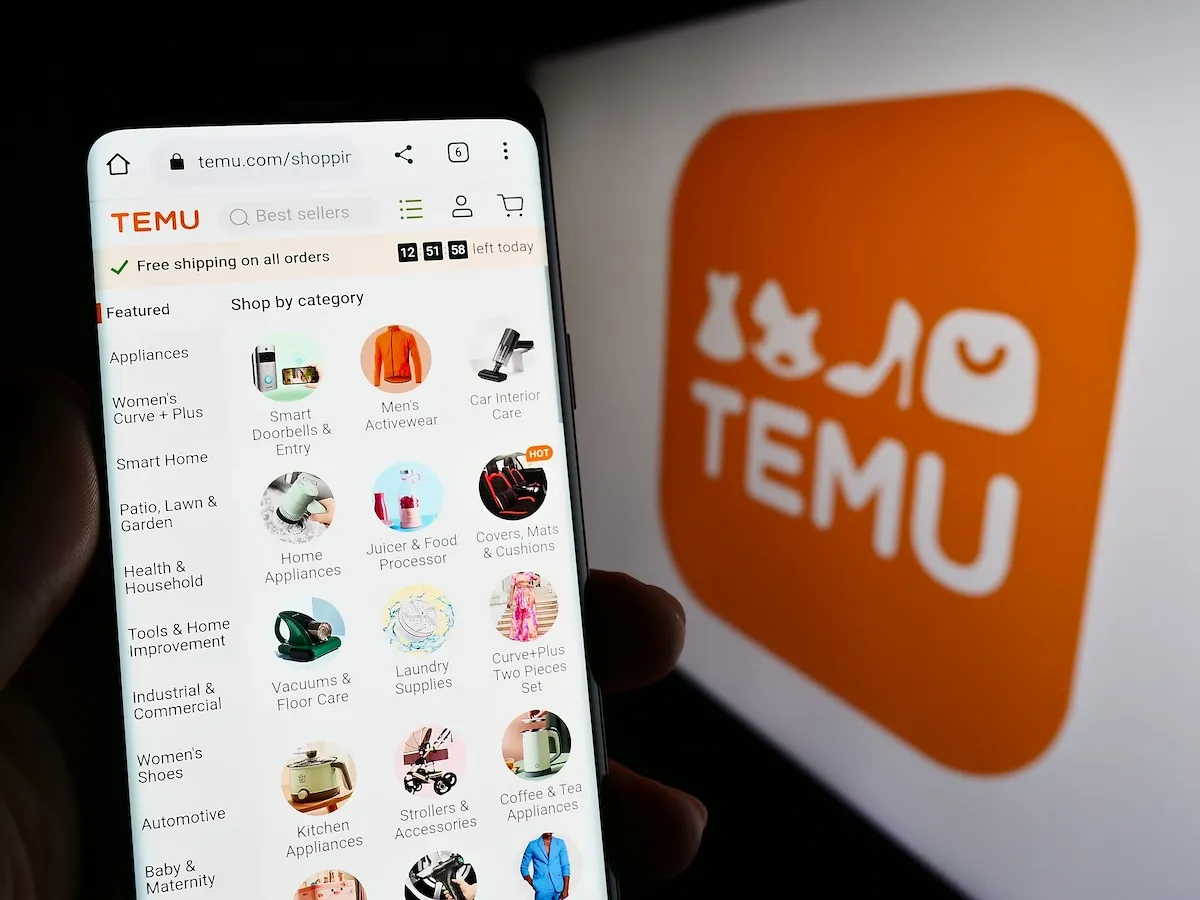In an era where online shopping is more than just a convenience, it’s a lifeline for many, and the allure of ‘free money’ is understandably irresistible. However, as the Chinese-owned marketplace Temu rolls out its promotional campaign offering up to £100 ($126) in cash and store credit for new UK sign-ups, it’s imperative to peer behind the curtain of this seemingly generous offer.

The Privacy Trade-off for Temu’s Cashback Rewards
Temu’s cashback scheme, while attractive for its financial incentives, has ignited a firestorm of privacy concerns. By participating, users unwittingly consent to Temu’s use of their “photo, name, likeness, voice, opinions, statements, biographical information, and/or hometown and state” globally and indefinitely.
This clause has raised alarms over the potential creation of deepfakes and the unforeseeable ways in which personal data might be manipulated or shared.
The offer mandates the download of the Temu app and encourages the sharing of an invitation code with others to earn gift vouchers and cash rewards. This has spurred a flood of social media posts, with users showcasing their earnings, some of which amount to significant sums. However, the question remains: at what cost?
Users are signing away their “likeness, voice, and opinions” for Temu cashback rewards.#Temu #privacy #datasecurity #cybersecurity #infosec https://t.co/k1EBhOXT5k
— CyberNews (@CyberNews) March 28, 2024
A Surge in Interest Amidst Privacy Concerns
This phenomenon has not gone unnoticed by the digital community. According to CSGOLuck’s analysis of Google Trends, there’s been a 450% increase in global searches for “Temu money” over the past 90 days.
The viral nature of this promotion underscores the critical balance between enticing online offers and the imperative of safeguarding personal data.

Temu, in response to the backlash, has clarified that it collects user information strictly for service delivery and enhancing customer experience, asserting, “We do not sell user information.”
Further, it reassured users by revising its cash rewards campaign’s terms and conditions to emphasize the limited use of usernames and profile pictures strictly for referral purposes and winner announcements.
A Global Backdrop of Cybersecurity Concerns
The controversy surrounding Temu’s promotional campaign arrives against a backdrop of heightened vigilance over Chinese cyber activities. Recent accusations from US and UK officials against Beijing’s alleged cyberespionage efforts, targeting a broad spectrum of victims, from lawmakers to journalists, have amplified concerns.
Incidents of cyberattacks attributed to Chinese state-sponsored hackers on Finland’s parliament and the vocal concerns of Dutch Prime Minister Mark Rutte to President Xi Jinping underscore the global apprehensions regarding data privacy and cybersecurity.

Navigating the Waters of Online Promotions
The Temu saga serves as a potent reminder of the complexities inherent in online promotions. While the prospect of ‘free money’ can be incredibly enticing, it’s essential for users to meticulously review terms and conditions, understanding fully how their data will be used.
The digital age demands a heightened awareness and cautious engagement with online offers, particularly those that seem too good to be true.
As online shoppers continue to navigate the plethora of offers in the digital marketplace, the Temu case exemplifies the delicate balance between seizing opportunities and safeguarding one’s digital footprint. It’s a stark reminder that in the digital world, privacy might just be the price of ‘free money’.










